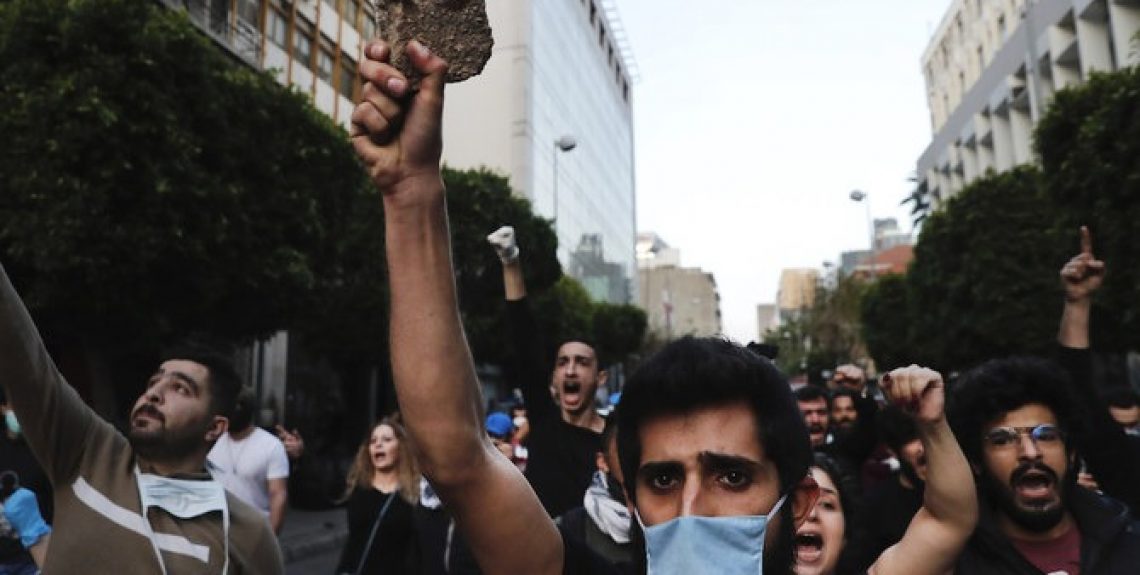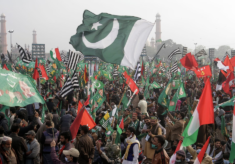(A version of this article appeared on the website of the Middle East Institute on March 25)
No part of the world will emerge unscathed from the fallout of the coronavirus pandemic of 2020. Just because China and Italy were the first to be severely hit, does not imply, that when all is said and done, that they will have sustained the brunt of the damage. Now might be an appropriate time to update the old adage, “When America sneezes, the world catches a cold.” The mid-21st century version might go, “When China coughs, Africa experiences state failure.”
We are living in a time where the international system is characterised by peak interconnectedness, enduring disorder and a lack of global leadership; the virus will merely increase these pre-existing trends. North Africa is a region dependent on global commodities prices, tourism, and political and monetary support from Europe and the Gulf. Here regime brittleness, youth unemployment, and Islamic radicalism all intersect. North Africa’s economies are poorly integrated with each other, yet migrants, jihadis, and guest workers fluidly transit the region. The disease presents a double-edged sword for them. It may increase short-term stability, while eroding it in the medium term.
The Pandemic is a Double-Edged Sword for North African Regimes
On the one hand, it implicitly forces citizens to rely on, and even in some instances defer to, their leaders in the face of the immediate crisis. This is particularly convenient for the Algerian “Pouvoir” which has undergone a forced transition and more than a year of ongoing massive popular protests. Predictably, fear of coronavirus was the death knell for that source of unrest, just as it was for protests in Iraq and Egypt. Even in war-torn Libya, the virus is already reducing arms shipments and in-flows of mercenaries to Haftar allowing the Tripoli-based GNA to score decisive blows with the aid of Turkish drones and Syrian fighters.
On the other hand, with the partial exception of newly democratic Tunisia, North Africa’s regimes are among the least prepared globally to mount a coherent response to the inevitable onslaught of the virus. They are bound to further inflame popular discontent with incompetent and corrupt responses to the pandemic. There are already accusations of widespread profiteering — with the Egyptian government coming under the crosshairs for price gouging vulnerable workers seeking to obtain tests for Covid-19. Moreover, the dramatic fall in oil prices will be potentially devastating in the medium term for Algeria and Libya.
Hence, we are likely to see a short-term increase in stability in Algeria and Egypt (and maybe even in Libya) followed by a serious rise in popular discontent in the medium term when the pandemic ebbs, but government revenue and youth employment are left woefully diminished in its wake. If governments’ handling of coronavirus is viewed as particularly inept (as we have seen in Iran), early to mid-2021 could become a challenging time for North Africa. We could even see a wave of popular protests roughly coinciding with the 10-year anniversaries of the Arab Spring events.
In short, despite its late arrival, the stage is perfectly set for coronavirus to occasion dramatic upheavals in North Africa. Whether warlords in Libya, cleptocratic oligarchy in Algeria, or military dictatorship in Egypt, no one should expect these regimes to proactively embrace genuine reform under any circumstances. Leaders in each have consistently prioritized maintaining their personal power above the long-term welfare of their citizens. In the past, regional governments have had money, historical legitimacy, a respected military, and a fear of a radical jihadist opposition to secure popular acquiescence even in bad times. Such buffers are a thing of the past.
Asking the Gulfis for a Bailout is so 2019
If push comes to shove, these brittle regimes are unlikely to deftly de-escalate tensions – the same can be said of Iraq, Lebanon, and Sudan, all of whom have recently undergone regime transitions. These new authorities lack experience. They may seek to provoke violence with domestic opponents to rationalize a crackdown on dissent and force foreign backers to come to their aid. Elites may split, resulting in coup attempts by those seeking systemic reform.
The most likely outcome is that the regimes will continue to do what they have done over the last several years: look to the UAE and Saudi Arabia for a bailout. However, in 2021, those two Gulf states will have their own problems as oil prices will almost certainly remain below the break-even point to balance their budgets.
The Gulf states will still have enough money to selectively prop up some of their clients in Algeria, Lebanon, Sudan, Libya, and Egypt for a few years, but will their own populaces accept such a choice when their domestic economic prospects have considerably dimmed? Offering continued largess to their clients without using it as a stick to facilitate meaningful reforms, will only weaken the UAE and Saudi Arabia’s global influence over time, without fundamentally improving the situations of their clients. Nonetheless, if history is any guide this backward-looking approach will be embraced by both clients and patrons.
Fundamentally, NATO should recognize that the hidebound, corrupt, and oppressive regimes currently in power in most of North Africa are not compatible with the future.
Time to Hope for the Best but Plan for the Worst
Syria should be evidence enough that simply allowing regimes to collapse is no guarantee of a brighter future or containment. NATO may not want to assert itself in the region now, but planning for the dire challenges bound to emerge after the pandemic is quite pragmatic. Regional governments may not have a vision for their own future, but there is no excuse for NATO to join them in pretending that tomorrow will never come.
NATO should plan for how it can support these countries in orderly transitions away from the worst excesses of authoritarian inefficiency. An Arab Spring 2.0 might erupt as a result of an abrupt wave of state failure and unemployment across North Africa in the wake of the pandemic and with a global economic crisis looming. Although not necessarily a likely event, it is certainly foreseeable and not improbable.
The best part of planning for the worst is the relief at never having to dust off those plans.
Jason Pack
Non-Resident Fellow at the Middle East Institute
























